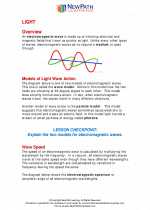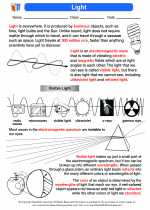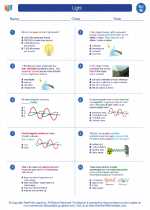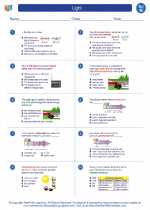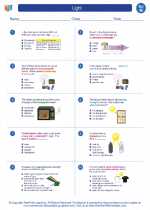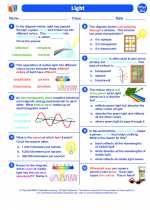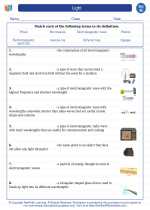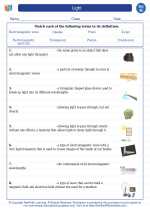Obtaining in Science
Obtaining in science refers to the process of acquiring data, materials, or information through various methods and techniques. It is a crucial step in the scientific method and is essential for conducting experiments, making observations, and gathering evidence to support scientific claims and theories.
Methods of Obtaining
There are several methods of obtaining information and materials in science:
- Experimentation: Conducting controlled experiments to gather data and test hypotheses.
- Observation: Making careful and systematic observations of natural phenomena.
- Research: Utilizing existing literature, scientific papers, and other sources to gather information.
- Data Collection: Using various tools and instruments to collect quantitative and qualitative data.
- Sampling: Collecting representative samples from larger populations for analysis.
Study Guide Questions
- What is the importance of obtaining in the scientific method?
- Explain the difference between qualitative and quantitative data collection methods.
- Provide examples of how experimentation is used to obtain scientific data.
- How can sampling be used to obtain reliable data in scientific research?
- Discuss the role of obtaining in forming and testing scientific hypotheses.
Key Concepts to Remember
When studying the topic of obtaining in science, remember these key concepts:
- The process of obtaining involves collecting data, materials, and information through various methods such as experimentation, observation, and research.
- Obtaining is essential for supporting scientific claims and theories, and it is a fundamental step in the scientific method.
- Data collection methods can be qualitative (descriptive) or quantitative (numerical), and both are important for scientific investigations.
- Sampling techniques are used to collect representative samples from larger populations, ensuring the reliability of the obtained data.
- Obtaining plays a critical role in forming and testing scientific hypotheses, ultimately contributing to the advancement of scientific knowledge.
